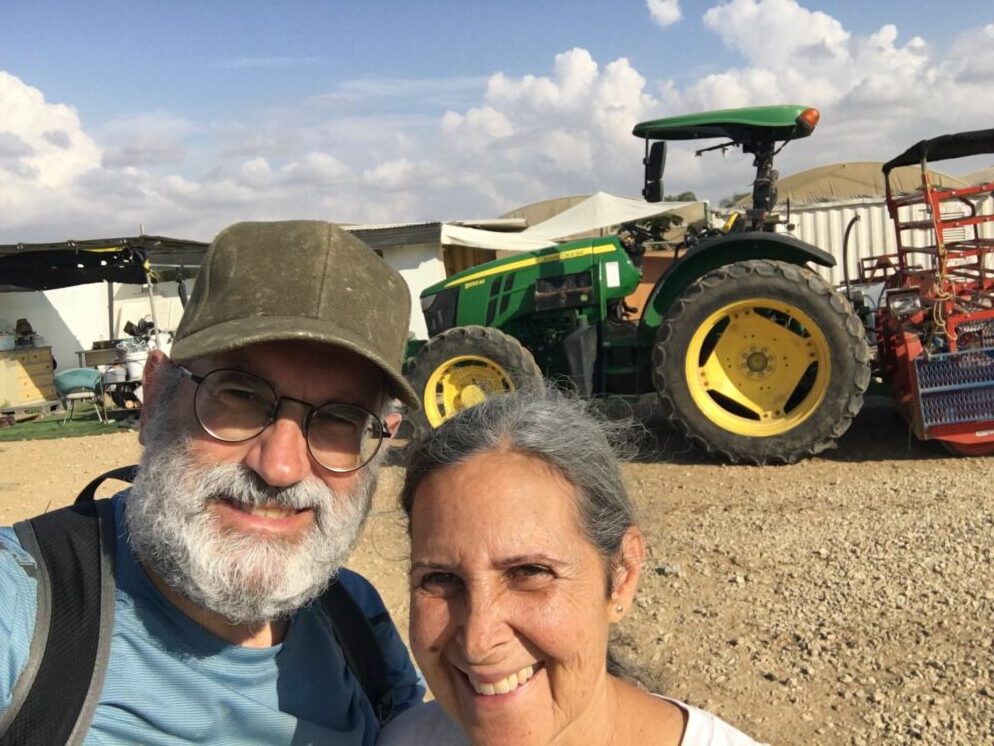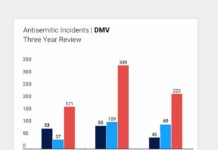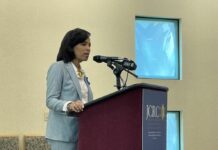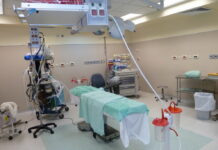
This Passover, Eric and Sue Marx of Chevy Chase will leave a chair empty at the seder table with an image of one of the hostages still being held by Hamas.
“During the seder, they are with us even though they are captive in Gaza,” said Sue Marx, whose daughter lives in Israel. The Marxes were visiting their daughter, her husband and their three small children on Oct. 7.
That day, Hamas militants stormed into southern Israel from Gaza. They killed some 1,200 people, mostly civilians, and took around 250 men, women and children hostage. There are still 134 hostages remaining.
Jews may face challenges celebrating Passover this year during a time of pain for Israelis and amid rising antisemitism globally. Passover is a celebration of freedom, with its annually re-enacted drama of slavery and liberation. But local Jewish leaders say there are rich layers of meaning in the Haggadah that can accommodate this perilous time for Jews.
Marx, a retired prayer and music teacher at Charles E. Smith Jewish Day School, will add special prayers to her seder, which will be attended by friends. “It’s basically saying that all Jews are together and related. We’re all brothers and we pray to God to help the Jews who are in captivity or in great sorrow and that God will free them.”
Alan Ronkin, regional director of American Jewish Committee, stated that not only should we leave a chair empty for a hostage, “we should take some time to tell their story. That personalizes the experience and also helps us to connect with this incredible challenge that the Jewish people are facing.”
The Hebrew Passover song Dayenu, which means “It would have been enough for us,” becomes problematic this year. The song is about being grateful to God for all the gifts he gave the Jewish people, such as taking them out of slavery and giving them the Torah and Shabbat.
Ronkin said that looking at the lines of Dayenu, “it’s almost a question of how do you accept and appreciate what we’ve been able to accomplish so far and understand that there’s still much further to go.”
The real question is how to talk about freedom at a time when people are being held hostage, Ronkin said. “We’re supposed to think of ourselves as if we ourselves had exited Egypt. That can teach us a lot about how precious our freedom is and how much we have to work to make sure that by next Passover, every single person being held by Hamas in
Gaza is free.”
The seder is full of symbolism that can add layers of meaning so that it speaks to this day and time in the history of the Jewish people, said Rabbi Amy Schwartzman of the Reform Temple Rodef Shalom in Falls Church. “The seder is a rich platform and opportunity for us to use Jewish symbols to express our emotions, our hopes, our fears around everything that is happening both in Israel and America today.”
The opportunity is there to reflect what you are feeling or what is happening, she continued. “The symbol of the salt water, the tears of our ancestors who were slaves, you can make a connection to our own tears on Oct. 7, as we watched a horrible massacre of our own people,” Schwartzman said.
Jews can also think about tears over the 32,000 Palestinians reportedly killed during Israel’s military operation in Gaza. “All pieces of the spectrum of the Jewish community have a place in the seder. Whether you’re calling for a cease-fire or endorsing something different, you can find a symbol in the seder that will rise up and speak to your views and your values at this time,” she added.
Rabbi Stuart Weinblatt of the Conservative Congregation B’nai Tzedek in Potomac said that in Passover “we find the parallels to what’s happening in the world today.”
One of them is “L’dor V’dor, to each and every generation, there are those who have sought to destroy us,” said Weinblatt, who is the founding chairman of the Zionist Rabbinic Coalition. “I think that when many of us are reading that phrase this year, we’ll be thinking of the malicious and evil intentions of Iran and its proxy Hamas, and the terrible destruction they brought about in the massacre on Oct. 7.”
Rabbi Abbi Sharofsky, director of intergroup relations for the Jewish Community Relations Council of Greater Washington, said she’s looked at how other faith leaders are celebrating. “What has Easter looked like? Or Ramadan for the Muslim community? They’re wrapping their heads around the trauma of this war and looking at what it means to have times of spiritual replenishment and redemption, which is what we are doing.
There’s something where we can point to and say, ‘We’re not free, but this year even more so.’ Maybe the discussion needs to shift from what does it mean that ‘no one is free until we all are free,’ as Dr. King has said.”
Marx plans to add a prayer for the soldiers of the Israel Defense Forces who are in combat, that they’re able to get home safely with their mission accomplished. Her son-in-law was called up as a reservist in Gaza and is now home for the time being.
“This is a time of great sorrow for the Jewish people on many fronts,” Marx said, “not the least of which is antisemitism here in America and across the world. But it’s also Pesach, and if we don’t celebrate, take all the steps in the seder and sing the celebratory songs, then the Hamas terrorists have won by extinguishing our spirit.”
Ellen Braunstein is a freelance writer.





